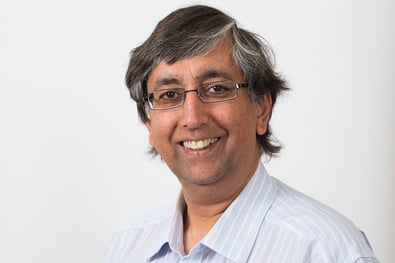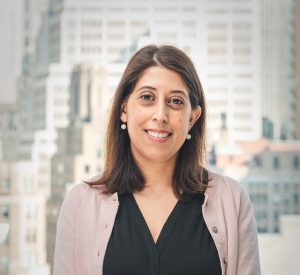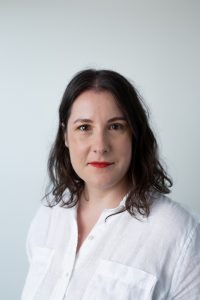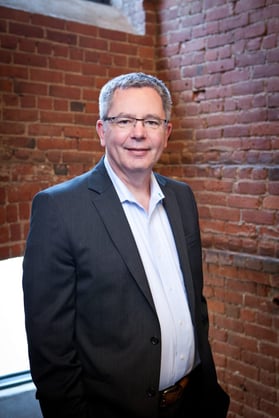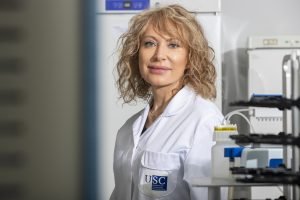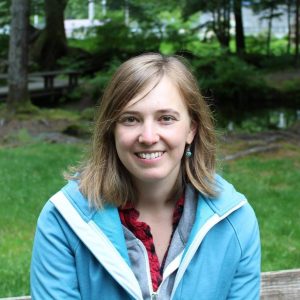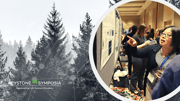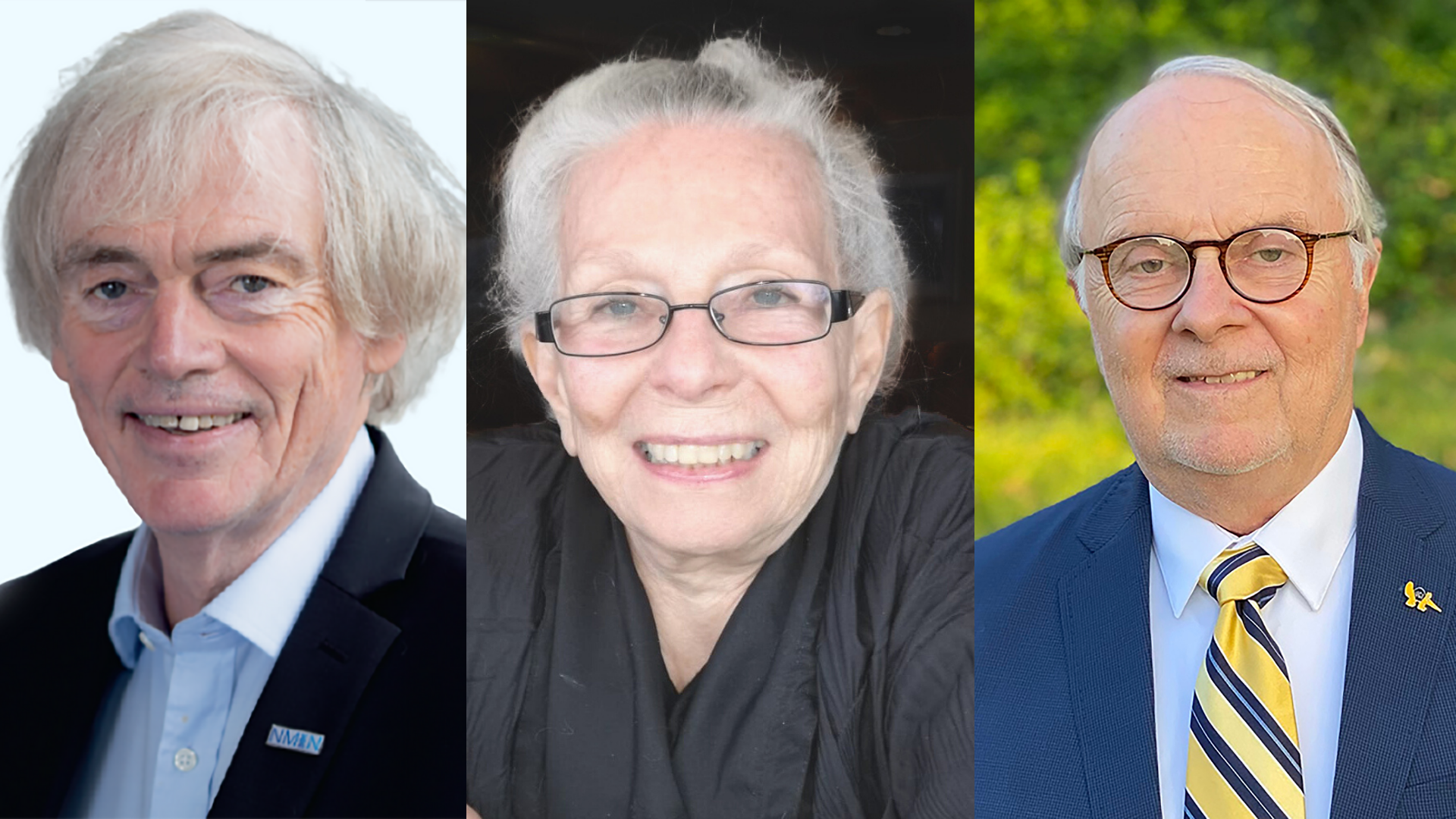Continuing the ePanel Conversation on Brain Therapeutics: Lessons Learned from Pandemic Times
Our battle with COVID-19 is far from over, but we’ve already learned some important lessons from the pandemic about the ways that science, scientific communication, and scientific collaboration can change for the better as a result of this global catastrophe. On Thursday, September 9th, six panelists gathered to talk about how lessons learned from the COVID-19 pandemic can be applied to accelerate clinical success in the realm of Brain Therapeutics.
The panel discussed how quickly groups from all over the world collaborated to study and develop the COVID-19 vaccines at unprecedented speed, and how to apply these lessons to their own field.
Read on for a synopsis of the event and extended Q&A with Dr. Jim Audia, Dr. Maria-Jesus Blanco and ePanel organizer Dr. Mabel Loza!
Watch the Free Event On Demand
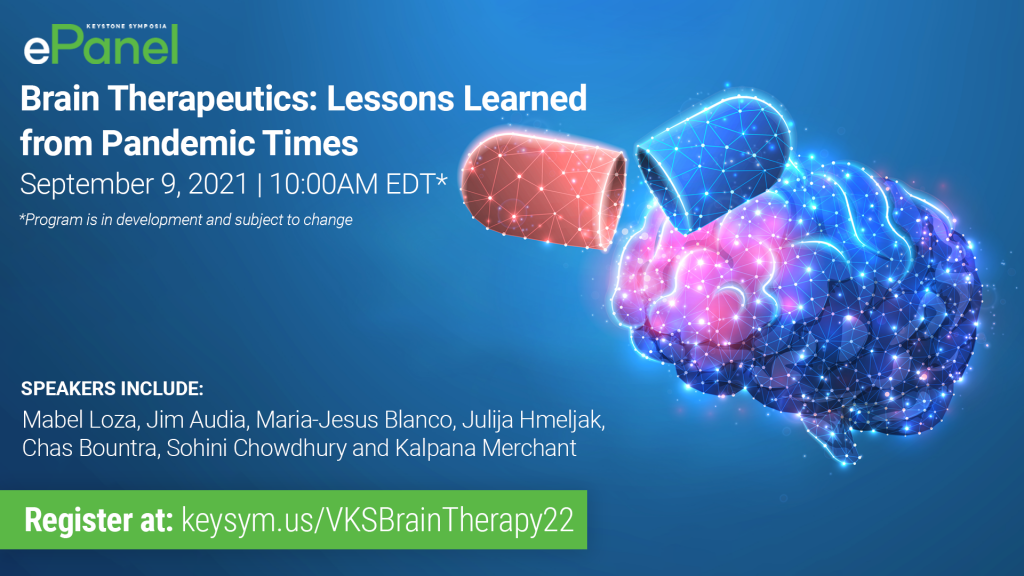
Collaborating Towards a Specific Goal
“For me, the big lesson from all of this is that when you get all the stakeholders together in one room, and you create that single vision, that single focus-- we’re going to generate a vaccine for this virus, COVID-19, as quickly as possible-- then we can do the impossible.
Collaboration is key.”
--Chas Bountra, PhD
Pro-Vice Chancellor for Innovation at the University of Oxford
Professor of Translational Medicine in the Nuffield Department of Clinical Medicine
Director of the Centre for Medicines Discovery
Professorial Fellow at Keble College, Oxford
Bountra argued that progress on the scale that was achieved for COVID-19 vaccines could be achieved in other areas—including in the area of brain therapeutics—but will require the focus of many groups on a single problem. However, given the diverse nature of brain pathologies, from Alzheimer's to autism, it will not be so easy to translate this focus to the field of neurobiology. “Each of these problems [in the neuroscience field] requires a ton of money. And no one government is going to put enough into it. We’re going to have to work together, and we’re going to have to focus.”
He conceded that the focus required might not be reached on a global scale, but that charitable foundations bring an element of focus on a local level, a point that Audia also agreed on. Charitable groups can gather individuals who are interested or invested in the same problem, lobby other individuals about the problem, and ultimately deploy gathered resources towards a single goal.
Julija Hmeljak, PhD, a scientific editor for The Company of Biologists Journal, agreed that the public can provide that source of focus: “One of the things we also saw in the last couple of years was the power of patients and their caregivers in the field of rare diseases... It was the patients and their mothers who pushed, and learned to read papers and learned to understand the science even though they weren’t scientists themselves. They went from door to door from geneticists, to bioinformaticians, to clinicians, to researchers, even companies, and now we have drugs for those kids. We can learn from big things (like common diseases like COVID) and we can also learn from n of 1 stories.”
However, Sohini Chowdhury, Deputy CEO and Head of Research at The Michael J. Fox Foundation for Parkinson's Research, argued that focus on a single disease, even on a local scale, might be hard to achieve. “The COVID example is really interesting, but I think we have to recognize that it’s not an example we can duplicate, it's very unique. The amount of resources that supported it, across governments, across institutions, I think it's naive to believe that that can be replicated. That being said, I think there’s a lot we can learn about what is scalable and what is applicable.”
Chowdhury argued that focus on a particular disease might not be possible for Brain Therapeutics field because there are so many diseases being worked on, but also that it might not be necessary. “It’s naive to think we're going to be focused on one disease, but at the end of the day, CNS research is about the brain.” She made the point that in researching Parkinson’s Disease, she learns a lot about the brain from other scientists studying diseases such as ALS, Alzheimer’s, even autism. “There’s a lot of basic biology about the brain that helps our understanding. But it's not always easy to access.” She addressed the importance of communication and open access publishing and made a call to action for everyone to publish and share their data as openly as possible.
Open Access Publishing as an Accelerator of Progress and Collaboration
The panelists agreed that the push towards open-access publishing during the COVID-19 pandemic was a critical factor in enabling COVID-19 research proceed so quickly and collaboratively. Julija Hmeljak, PhD, a scientific editor for The Company of Biologists Journal, spoke about the importance of open access publishing, as well as how publishers are stepping into new roles to facilitate connections between different groups of researchers, clinicians, patients, and others.
“The scientific publishing landscape is changing. It’s not enough for journals to just to be places where someone puts their paper. We need to be hubs where communication is encouraged… Journals can be active participants, helping to organize conferences and other means of breaking down silos so that funders, patients, scientists and clinicians can have a common language. This language can live and be created with the help of scientific journals.”
--Julija Hmeljak, PhD
scientific editor for The Company of Biologists Journal
Other panelists agreed that open access is changing the scientific process as we know it and enabling collaborations across sectors and around the world. “I think there’s been a democratization of science,” said James E. Audia, PhD, who serves on the executive advisory boards for several biomedical groups, including the Chicago Biomedical Consortium. “We’re no longer confined to geographic hotspots for doing research; we’re able to collaborate broadly... we’ve learned how to work with colleagues at great distances and that’s become normal.”
Biotechnology Companies as a Driver
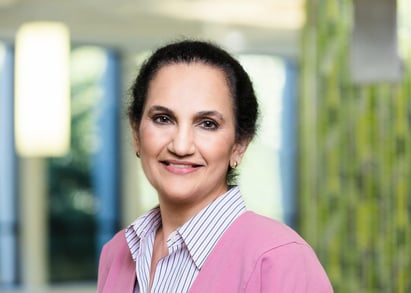
The conversation eventually turned to the role of biotechnology companies. Kalpana Merchant, PhD, an adjunct Professor of Neurology at Northwestern University suggested that the increase of small biotech companies in the field of neuroscience is changing the landscape of CNS research. “The role of smaller biotechs in taking risks and coming up with novel ideas of how to go after CNS diseases is changing how we’re developing drugs today compared to how were developing drugs even ten years ago. Larger pharma is not usually so interested in taking risks.”
Audia agreed there are many more neuroscience-focused companies lately, perhaps spurred on by successes that have resulted from taking risks in other disease areas. Chowdhury concurred with that idea that these new biotechnology companies are driving progress: “At the end of the day, biotechs are aggressive and they want to move forward. They don't have enormous resources so they want to get where they're going as quickly as possible.”
However, she also stressed the importance of biotechnology companies being connected to existing researchers and clinical trial systems. “At least in our experience with Parkinson’s, to be able to give these biotechs the best chance of success, it helps to have a group like the Fox Foundation to help provide access to resources.” In particular for diseases where funding resources are lacking, a connection to an institution that can bridge to large pools of patients and existing study designs can help small biotechs to succeed.
A Sense of Urgency
Ultimately though, what drove the rapid pandemic response was a sense of urgency, which is currently lacking in the field of CNS diseases, says Maria-Jesus Blanco, PhD, Senior Director and Head of Chemistry at Sage Therapeutics. “It’s not only focus but a sense of urgency. Do we have enough of sense of urgency about brain health?” She argued that because the CNS diseases are slower to progress, the importance is felt less intensely. In addition, even though collectively brain diseases affect a huge percentage of the population, because each individual disease affects fewer people there is not a collective cry to action. She thinks that urgency around brain health is increasing, but if it was higher there would be greater funding available to drive progress.
"Suicide incidence in CNS disorders is also a critical issue that should be highlighted, in particular due to the impact of COVID and social isolation on people’s mental health. In general, a broader education about brain health and removing any stigma is important to increase the sense of urgency on those disorders," says Blanco.
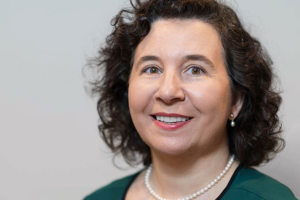 Altogether, the panel agreed that COVID-19 has permanently changed the state of science—in many cases for the better. The impacts can be seen not only in the realm of infectious disease research, but across the biomedical landscape. Despite the fact that the pandemic forced physical isolation and lockdowns around the world, it prompted greater connection, communication and collaboration among the scientific community—lessons that we should all take forward in post pandemic times to accelerate research and clinical advances. We hope that you continue these conversations and apply these lessons in your own field, as we all adjust to navigate a new normal and look towards tackling the challenges ahead.
Altogether, the panel agreed that COVID-19 has permanently changed the state of science—in many cases for the better. The impacts can be seen not only in the realm of infectious disease research, but across the biomedical landscape. Despite the fact that the pandemic forced physical isolation and lockdowns around the world, it prompted greater connection, communication and collaboration among the scientific community—lessons that we should all take forward in post pandemic times to accelerate research and clinical advances. We hope that you continue these conversations and apply these lessons in your own field, as we all adjust to navigate a new normal and look towards tackling the challenges ahead.Extended Q&A with Drs. Audia, Blanco and Loza
The panel catalyzed much discussion and a lively Q&A with the global audience. Unfortunately, we were not able to address all the insightful questions during the time allotted for the event. Dr. Jim Audia, Dr. Maria-Jesus Blanco and Dr. Mabel Lopez was gracious enough to provide answers to the remaining questions below, to address the curiosities and concerns of the community.
Cherie Butts: Machine learning models are susceptible to unintended bias. How should we ensure fairness of models, especially as they are being used more as decision-support tools?
Dr. Audia: Bias is not limited to machine learning models but has to be accounted for in all decision-making paradigms. A necessary first step is increasing awareness of biases and emphasizing a diverse set of factors and approaches to inform decisions. I’m not at all trying to trivialize this challenge but to my thinking the availability of multiple decision-support models which layer in additional dimensions of data and information into the process have the potential to reduce bias if properly applied.
Dr. Blanco: In addition to Dr. Audia's comments, it is important to use more than one model to avoid potential bias. Convergence of data can help drive decision-making.
Manuel Campos Toimil: Considering, on the one hand, the connection between Covid-19 and cardiovascular disorders and, on the other, the connection between cardiovascular diseases and neurodegeneration, is it possible that patients who have overcome Covid-19 have a greater chance of developing neurodegenerative processes due to alterations derived from brain microinfarcts leading to blood-brain barrier damage?
Dr. Audia: I think that this is an incredibly important area for study and agree with your premise that the long-term impact of Covid-19 infection is poorly understood. Because such large numbers of people have experienced Covid-19 infection there will be a great opportunity to study these long term implications, but this will be an enormously complex undertaking.
Jose Antonio Enriquez: Should we maintain organ centered research to understand and combat organismal diseases? How much the so-called brain diseases may have a metabolic or immunological related causal link?
Dr. Audia: Good question Jose Antonio. From my viewpoint, it should not be an either / or situation, but requires the study of both. There is a place for reductionist approaches to answer specific questions, but also a critical need to understand the disease(s) in the context of broader systemic dysfunction.
Cherie Butts: In terms of patient-focused efforts, how should we engage patients across different demographics and lifestyles as we know representation in clinical trials is critical to fully assess safety and efficacy of drug candidates across the heterogeneity of disease manifestation and have not been successful in the past?
Dr. Audia: Cherie, a difficult challenge for clinical development since at the early stages it is necessary to stratify patients (perhaps even more so than in the past) in order to answer very specific questions and to generate interpretable findings. This stratification should not be on the basis of demographic and lifestyle metrics but ensuring that the trial explored the primary question in the most appropriate (biologically) patient subset. Clearly after the Phase 1 / 2 studies, more inclusive studies have to be implemented in Phase 3 to understand the impact of the therapeutic in a more diverse set of patients. How do we encourage under-represented groups to participate in clinical studies and how to we encourage / require trial sponsors to conduct trials that better reflect the entire patient population are important questions.
Dr. Loza: This is one of the key aspects that we should consider in the context of this roundtable discussion: to learn from the experience and the sacrifice of patients how to be more efficient and effective.
Bandita Bagchi: The pandemic has highlighted the need of lab research work to be in sync with different agencies, in order to speed up the availability of therapy in public domain. Brain Therapeutics is challenging owing to availability of samples, how do we address this issue?
Dr. Audia: Not-for-profits and consortia (such as Michael J Fox Foundation, CHDI and the Tau Consortium of the Rainwater Charitable Foundation) have done an excellent job of better connecting patients and patient samples to clinical and basic science investigators. Patient registries and brain banks have been supported and funded to democratize access to these important samples and to educate patients and their families (and caregivers) to the broad spectrum of therapeutic options, including clinical trial participation, in these neurodegenerative disorders.
Dr. Loza: Again, as in the last question, this is the road to efficiently produce new drugs safely. We need to validate candidates in patient samples, in the context of real disease. In order to reach patients faster, we need to develop a "micro-factory" approach, focused on the direct linkage between a new hypothesis, patient stratification and new drug development.
Maria Matos: How to leverage the new way of working that has been put forward due to COVID-19 (global, virtual, etc.) in the drug discovery CNS field?
Dr. Audia: I do think that the pandemic restrictions have changed our way of working forever. We have learned how to better collaborate virtually, and we have also learned important lessons on what doesn’t work and what we miss by working remotely. This is not unique to CNS drug discovery, but the model is already being applied broadly across industry, academia and the not-for-profit space.
Dr. Blanco: I do hope that this new model that it is evolving, with an emphasis on virtual/remote approaches allows to connect researchers more frequently to address important and basic concepts in science and in particular, brain therapeutics.
Dr. Loza: This is the key question Maria, and the key conclusions from the round table seems to be point towards three points: focus, leadership and collaboration.
Raquel Abalo: I agree with the problem that brain is complex, the solution needs focus and joint effort. I would like all to remember that the brain is not disconnected from the rest of the body. In my view, it is also necessary to take into account also those connections, for example, with the gut (I am working on the brain-gut axis). I know this increases the level of complication, but I would like to know if you consider this also important...
Dr. Audia: I strongly agree with you that the brain does not exist fully outside of the influence of other organ systems. As I mentioned above, it should not be an either / or situation, but requires the study of both. There is a place for reductionist approaches to answer specific questions, but also a critical need to understand the disease(s) in the context of broader systemic dysfunction.
Bandita Bagchi: Lab CNS Research is tough to translate in clinics. What efforts can speed up interdisciplinary research?
Dr. Audia: I think that this is a central challenge, and I don’t have an easy answer. Some of the translational challenge is the lack of availability of suitable / predictive models for many CNS disease, or perhaps an over-reliance on the existing models or over-interpretation of data from these models. Critical is a disciplined understanding of the suitability of models for answering key questions…for example, are the AD transgenic models true disease models (I think not) or only suitable to understanding amyloid (or tau or other dysregulated proteins) synthesis, clearance and aggregation. Translating mouse behavior into human behavior is highly complex…better models may be part of the solution, but better and more thoughtful utilization of the existing models is necessary as well.
Dr. Blanco: In addition, interdisciplinary conferences with participants from different areas can stimulate new perspectives and collaborations, driving progress forward.
Mujeeb Salaam, from IUIU, Kampala, Uganda: My question is on the possibility of herbal medicine to manage dementia-- are there any prospect reported so far?
Dr. Loza: It is possible and there is active research looking for new hits and scaffolds coming from natural products. In fact, a great number of current drugs are based on natural products knowledge and traditional herbal medicines.
Watch the Free Event On Demand

About the Author
Alison Gilchrist
I graduated with my doctorate in molecular, cellular, and developmental biology from the University of Colorado Boulder in December 2020. During my PhD I studied flaviviruses, which is a group of viruses that includes dengue, Zika, and yellow fever viruses, among others. Then I moved to New York University to study the COVID-19 vaccines and our immune response to new vaccine platforms.
Throughout 2020 and into 2021, working with Keystone kept me involved in the scientific community beyond my thesis work and immediate lab surroundings, which I very much appreciated, since travel and in-person meetings were out of the question! Every virtual meeting has taught me about new techniques and scientific discoveries, and it has been a treat to see so many possibilities on the future just as I was making decisions for my own scientific career.
Connect with Alison on Twitter @AlisonAbridged or email alison.r.gilchrist@gmail.com
See Alison’s podcast @BuffsTalkSci or buffstalkscience.com
Related news
Leveraging Nanoparticle Technologies for Novel Vaccines & Therapies ePanel
Nanoparticles are emerging as a powerful mode of delivery for drugs, vaccines and even gene...
The Evolution of Lipid Nanoparticles: From Biophysics to Gene Therapy, Vaccines and Drug Delivery
On April 27th Keystone Symposia hosted a free ePanel to explore recent breakthroughs in...
Continuing the Conversation on Lipid Nanoparticle Technologies for Novel Vaccines and Therapies
On April 27th Keystone Symposia hosted a free ePanel event featuring pioneers in lipid nanoparticle...
